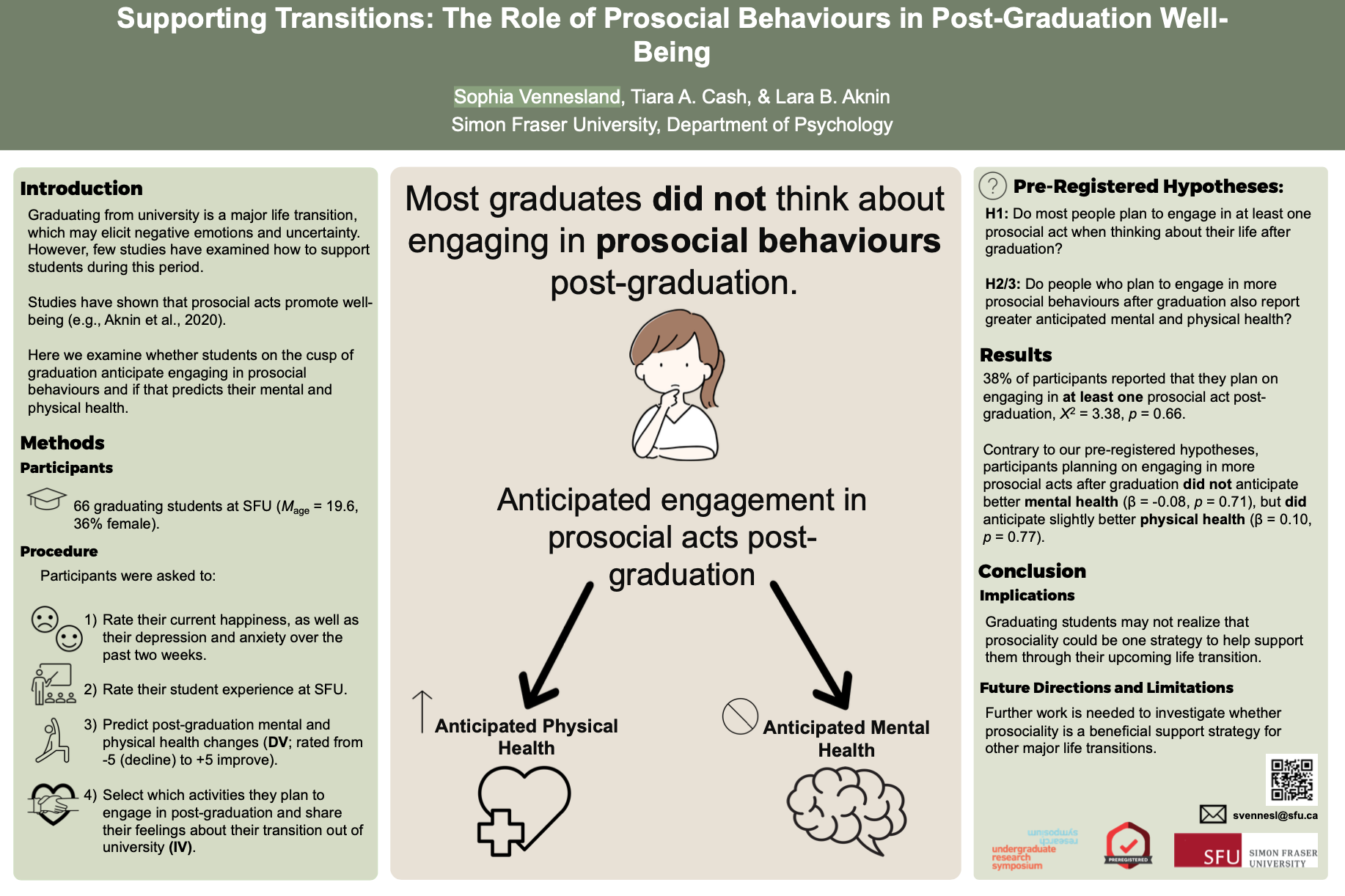Supporting Transitions: The Role of Prosocial Behaviors in Post-Graduation Well-being
Main Article Content
Abstract
Most people go through life transitions, which are defined as a period in life where an individual begins something new and experiences one or many lifestyle changes as a result. Whether it be a minor transition, such as starting a new workout routine or a major transition, such as moving to a new country, life transitions may cause people to experience several negative emotions, barriers, and uncertainty. What can help people through this challenging time? Past research has demonstrated that engaging in behaviors that are intended to help others (prosocial acts) can improve one’s well-being. Yet, little research has examined the salubrious effects of prosociality during life transitions, such as post-graduation. Therefore, we conducted a pre-registered midway examination survey (n = 66) to examine whether graduating students planned to engage in prosocial acts during this life transition and whether they expected these behaviors to support their mental and physical health. Further data on our full intended sample of 150 participants will be collected at the June 2024 convocation. Contrary to our pre-registered hypotheses, most graduates did not plan on engaging in at least one prosocial behavior when thinking about their upcoming life transition of graduating from university. Furthermore, people who anticipated in engaging in more prosocial acts after graduation did not anticipate experiencing better mental health, though they did anticipate experiencing better physical health. These early findings suggest that people may overlook prosocial acts as a route to support their own mental health during their transition out of university.
Faculty Supervisor: Dr. Laura B. Aknin, Department of Psychology, Simon Fraser University
Research Team Member: Tiara Cash, Department of Psychology, Simon Fraser University
Article Details

This work is licensed under a Creative Commons Attribution-NonCommercial-NoDerivatives 4.0 International License.

